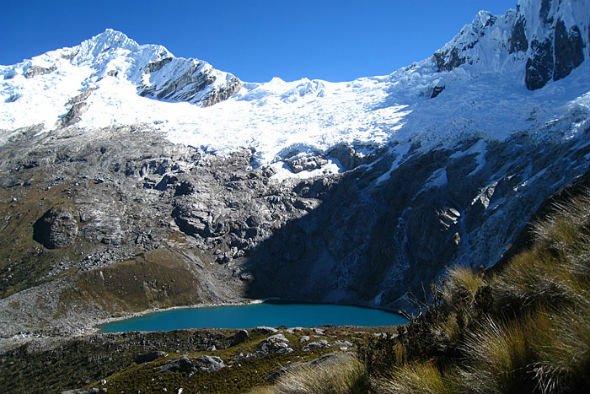Social Scale and Response to Climate Change
Participatory experiments in glacier communities
Researchers: Ben Orlove (PI), Kerry Milch
Two key issues in environmental decision-making are temporal discounting and tradeoff between economic and social goals. Individuals are relatively little concerned about climate change, because they see it as occurring in a distant future and as affecting unrelated others. The main focus of this project is detection of climate change through direct experience from glacial retreat, declining water availability, and flood risks in three Alpine regions: Swiss Alps, Peruvian Andes, and the U.S. Cascades. Glacial retreat is a highly visible consequence of warming in Alpine environments. The gradual nature of glacial retreat is a typical example of the psychological challenges posed by climate change phenomena. Glacial changes have important effects on resources (streamflow) and on hazards (floods, rockfalls) and hence can elicit action plans.
CRED’s goal is to identify and examine community and individual attributes that influence expectations, encoding, and temporal framing of glacial retreat, and thus affect responses to climate change. Community variables studied include spatial proximity to glaciers, vulnerability to impacts of glacial retreat, balance of individual and public ownership of natural resources, and relevant organizations in the community. Individual variables include socioeconomic and demographic characteristics, ownership of resources impacted by glacial retreat, size of social networks, and extent of participation in community organizations. Building on ties developed in these communities, we examine group processes and goals in framing decisions and in using scientific information, within well established and cohesive community groups – through collective discussions, ethnography, interviews, and experiments.
Residents of communities near glaciers in the US, Italy and Peru focus on long time scales, often decades or longer, and show nearly as strong concern for larger social collectivities as for themselves and their immediate families. The association of these two characteristics is suggestive, and in a next phase of this project we will probe the link between them. Residents from each region will be invited to join in a new organization that will link them to residents of glacial areas elsewhere in the world, thus expanding their social scale. The effects of social scale expansion on perception and action will be assessed by varying the timing of the invitation (near the start of contact or half-way). In subsequent experiments, community residents will participate in expansion of the new organization and in experimental design. Interviews and ethnography will provide contextual information for analysis of experimental results.
The three regions explored in this study offer unique opportunities to study human decision-making about climate change. The impacts are directly observable, can be linked to long-term datasets and records that document physical and social processes of change, and available GIS data for the location of human settlements, hydrology, and physical hazards.
Significant outreach activities will take place through this new organization, through NGOs linked to it and through national and international agencies involved in climate change. This project has considerable educational opportunities for preparing learning modules about perceptions and responses to climate change.

(Photo by K. Dunbar)
Related publications:
Orlove, B.S. 2009. Glacier retreat: Reviewing the limits of human adaptation to climate change. Environment, 51(3):22-34.
Orlove, B.S., E. Wiegandt, & B.H. Luckman. 2008. Darkening Peaks: Glacial Retreat, Science and Society. Berkeley: University of California Press.
Orlove, B.S., E. Wiegandt, & B.H. Luckman. 2008. The Place of Glaciers in Natural and Cultural Landscapes. In Orlove, B., Wiegandt, E. and Luckman, B. (Eds.). Darkening Peaks: Glacier Retreat, Science and Society. Berkeley: University of California Press.
Darkening Peaks Blog– A Forum for News About the World’s Shrinking Glaciers and the People Who are Affected by Them



